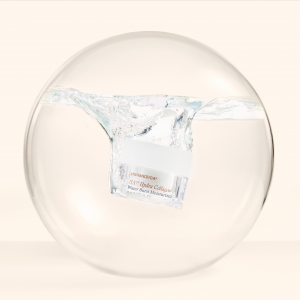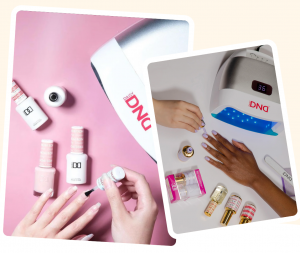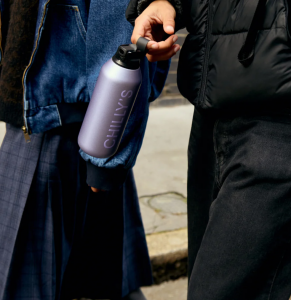
As we age, our skin undergoes numerous changes, including a decrease in collagen and elastin production, leading to wrinkles, fine lines, and sagging skin. While aging is a natural process, there are ways to minimize its effects, and one effective approach is through the use of anti-aging skincare products. These products often contain key ingredients that have been scientifically proven to combat the signs of aging. Here, we’ll discuss the top five anti-aging ingredients you need to know about.

1. Retinol
Retinol, a derivative of vitamin A, is one of the most widely researched and proven anti-aging ingredients. It works by stimulating collagen production and promoting cell turnover, resulting in smoother, firmer skin with fewer wrinkles and fine lines. Retinol is also effective in treating acne and improving overall skin tone and texture.
Benefits for Skin:
- Stimulates collagen production
- Promotes cell turnover
- Reduces wrinkles and fine lines
- Improves acne and skin texture
How to Use:
- Start with a low concentration to minimize irritation
- Apply a pea-sized amount to clean, dry skin at night
- Use sunscreen during the day, as retinol can increase sun sensitivity
2. Hyaluronic Acid
Hyaluronic Acid is a naturally occurring substance in the skin that helps retain moisture and keep it plump and hydrated. As we age, the amount of hyaluronic acid in our skin decreases, leading to dryness and the formation of wrinkles. Using hyaluronic acid in skincare products can help replenish moisture and improve skin elasticity.
Benefits for Skin:
- Hydrates and plumps skin
- Improves skin elasticity
- Reduces the appearance of fine lines and wrinkles
How to Use:
- Apply a few drops to damp skin
- Follow with a moisturizer to seal in the hydration
- Use daily for best results
3. Vitamin C
Vitamin C is a powerful antioxidant that helps protect the skin from free radical damage caused by sun exposure and pollution. It also helps brighten the skin and reduce the appearance of dark spots and hyperpigmentation. Vitamin C is known for its ability to boost collagen production, resulting in firmer, more youthful-looking skin.
Benefits for Skin:
- Protects skin from free radical damage
- Brightens skin tone
- Reduces dark spots and hyperpigmentation
- Boosts collagen production
How to Use:
- Use a vitamin C serum in the morning before applying sunscreen
- Store the serum in a cool, dark place to maintain its potency
- Start with a lower concentration to minimize irritation
4. Peptides
Peptides are short chains of amino acids that act as building blocks for proteins such as collagen and elastin. When applied to the skin, peptides can help stimulate collagen production, resulting in firmer, smoother skin with fewer wrinkles and fine lines. Peptides are also effective in reducing inflammation and promoting skin healing.
Benefits for Skin:
- Stimulates collagen production
- Reduces wrinkles and fine lines
- Improves skin texture
- Reduces inflammation and promotes healing
How to Use:
- Look for products containing peptides, such as serums or moisturizers
- Apply a pea-sized amount to clean, dry skin
- Use daily for best results
5. Niacinamide
Niacinamide, also known as vitamin B3, is a versatile ingredient that offers a wide range of benefits for the skin. It helps improve skin barrier function, reduce inflammation, and regulate oil production, making it suitable for all skin types, including sensitive skin. Niacinamide also helps reduce the appearance of pores and fine lines, resulting in smoother, more even-toned skin.
Benefits for Skin:
- Improves skin barrier function
- Reduces inflammation
- Regulates oil production
- Minimizes the appearance of pores and fine lines
How to Use:
- Incorporate niacinamide into your skincare routine with products such as serums or moisturizers
- Use daily for best results
- Can be used in conjunction with other anti-aging ingredients for enhanced benefits
Conclusion
Incorporating these top five anti-aging ingredients into your skincare routine can help you achieve smoother, firmer, and more youthful-looking skin. Whether you’re looking to reduce wrinkles and fine lines, improve skin texture, or protect your skin from environmental damage, these ingredients offer effective solutions. Remember to start with a lower concentration of active ingredients to minimize irritation, and always use sunscreen during the day to protect your skin from further damage.

FAQs
1. Can I use multiple anti-aging ingredients together?
- Yes, you can use multiple anti-aging ingredients together, but it’s important to introduce them gradually and monitor how your skin reacts. Start with lower concentrations and gradually increase as your skin tolerates.
2. How long does it take to see results from anti-aging products?
- Results from anti-aging products can vary depending on the individual and the product used. In general, you may start to see noticeable improvements in skin texture and tone within a few weeks to a few months of consistent use.
3. Can I use anti-aging products if I have sensitive skin?
- Yes, many anti-aging products are formulated for sensitive skin. Look for products that are fragrance-free and contain gentle, non-irritating ingredients such as hyaluronic acid and peptides.
4. Are there any side effects of using anti-aging ingredients?
- Some anti-aging ingredients, such as retinol, can cause skin irritation, dryness, and sensitivity to sunlight. It’s important to follow the usage instructions carefully and start with a lower concentration to minimize these side effects.
5. Can I use anti-aging products if I’m pregnant or breastfeeding?
- It’s always best to consult with your healthcare provider before using any skincare products, especially if you’re pregnant or breastfeeding. Some ingredients may not be safe for use during pregnancy or breastfeeding.





